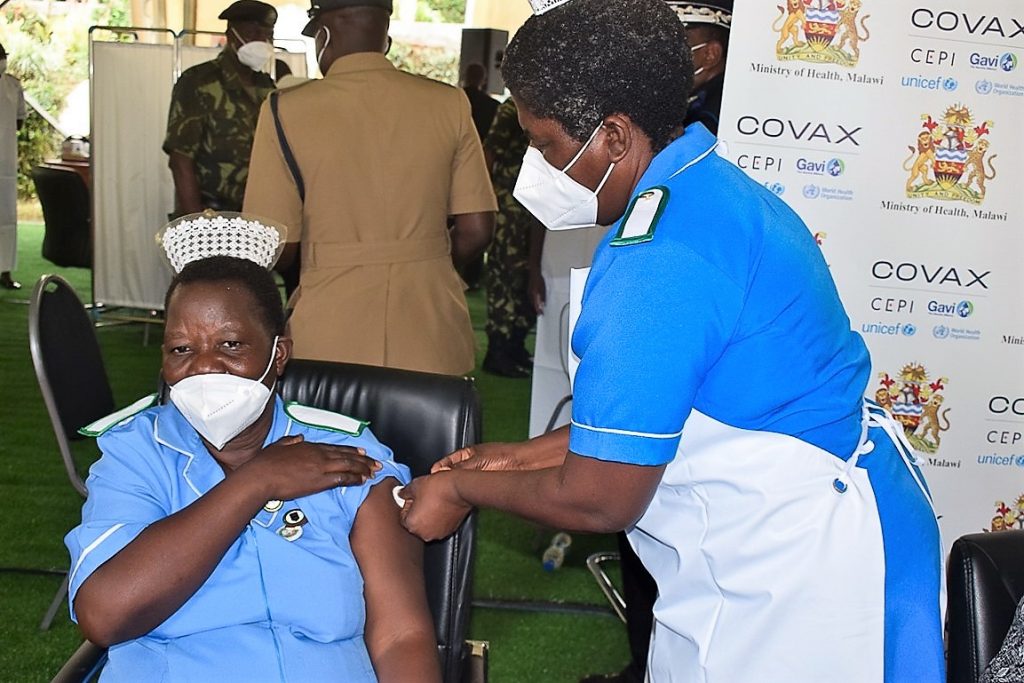Govt clears Covid vaccine mist
Minister of Health Khumbize Chiponda has clarified that people who have recovered from Covid-19 should get the vaccine after six months.
Speaking during the daily Covid-19 update on Saturday, the minister said those who previously tested positive need to wait for six months before getting the vaccine, largely due to limited resources and the adverse effects that they may have after getting the vaccine.

She further said pregnant women and lactating mothers can get the vaccine if benefits of the vaccine outweigh the risk of having the disease.
Chiponda said: “Those that tested positive for Covid-19 with or without symptoms should delay vaccination until six months. This is because, natural immunity remains available for some time but wanes off by six months.
“Further, for pregnant women, we may consider the vaccination with the view that the benefits of getting a vaccine and being protected from Covid-19 outweigh the risk of having the disease.”
In an interview, Ministr of Health Principal Secretary Dr Charles Mwansambo said people who have had the infection have some form of protection, while those that have not had the infection have no protection; hence, the need to protect them first.
“The response may be exaggerated in a few people who have the vaccine after the Covid-19 infection, but it is short-lived and not life-threatening.
“Also, bodies react differently to the injection. It has been observed that those who have had the infection would react. Because they already have some defense in their bodies, they would have slightly severely self-limiting side effects, but most of them do recover completely.”
On his part, Society of Medical Doctors president Dr Victor Mithi said the decision is largely due to limited vaccines.
Even when experiencing symptoms of Covid-19, the expert’s view, which the World Health Organisation (WHO) corroborates, is that people should not get the vaccine because it could worsen the symptoms and cause serious disease.
The WHO indicates that people who have a history of severe allergic reactions to any ingredients of the Covid-19 vaccine, or are currently sick or experiencing symptoms of Covid-19 should not get the jab to avoid possible adverse effects.
On his part, epidemiologist Titus Divala said current surveys show that in cities, as many as 50 percent have had SARS-COV-2 infection, most without even knowing it, as such, it may not be practical to efficiently exclude them all.
He said: “The good thing is that the vaccine manufacturers have not listed previous infection as a reason for not taking the vaccine, which means it is not harmful.
“The minister is probably putting this forward because people who have had the virus before tend to have a stronger reaction to the vaccine with worse side effects compared to those who did not experience the virus before.”
Meanwhile, Professor of Public Health and Epidemiology at the College of Medicine, Adamson Muula has said the confusion arises because countries are learning and implementing Covid-19 issues at the same time.
He said ideally, people who recovered from Covid-19 were not expected to get sick again within a year, but some people are still not fully protected.
On Saturday, Malawi received additional 100 000 doses of AstraZeneca vaccine from the African Union, adding onto the 50 000 doses from the Government of India, and 360 000 from the Covax Facility. This brings the total number of doses received so far to 510 000.





